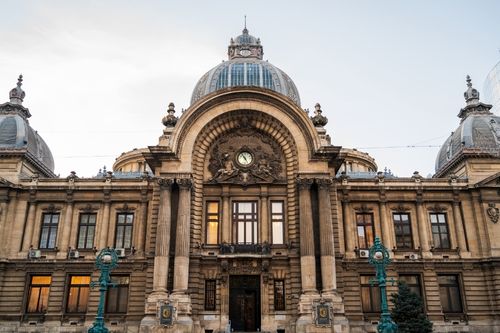Table of Contents
About the University of Bordeaux
The University of Bordeaux has a history of nearly six centuries. It is a multidisciplinary institution with deep regional roots that extend to the European and international levels. It is now attempting to meet the challenge of environmental and societal transitions while also improving the overall well-being of its community. Let’s discuss the University of Bordeaux courses and how it delivers on its promise of providing world-class education and facilities.
Mission and values
The University of Bordeaux is a global institution for learning, innovation, and knowledge transmission. By combining research and education, the University of Bordeaux is preparing tomorrow’s citizens and assisting them in becoming successful in both their personal and professional lives.
The university’s lifelong learning opportunities continuously enrich employees’ skills and transform companies and communities. The University of Bordeaux has remained committed to intellectual and cultural values throughout its history. It has been open-minded and promoted freedom of thought that the great figures of the renaissance and enlightenment left behind.
Key facts
- The university has 54,000 students overall.
- The university has 6,000 staff members, including nearly 3,200 lecturer-researchers and researchers.
- The university has 90 research facilities, including 65 in co-supervision with research organizations.
- There are 50 fields of research and education available at the university.
- The university has 27,000 scientific publications from 2015 to 2020, including 18% in the top 10% of the world’s most cited publications.
- The university has 130 joint European research projects within Horizon Europe and other programs.
- It is the 1st French university in terms of patents filed (INPI 2018, 2019, 2020 ranking).
- The university has 18 campus sites in Nouvelle-Aquitaine.
- The university has 187 hectares of campus grounds, including 140 hectares of green spaces.
Achievements
The University of Bordeaux is famous for its capacity for innovation and won the ‘Initiative of Excellence’ label. It regularly contributes to major scientific advances with its academic and socioeconomic partners in France and abroad. In keeping with its commitment to environmental and societal transitions, it ensures their transmission and facilitates their transfer to society.
The university has contributed to the development of the European Higher Education Area (EHEA) and the European Research Area (ERA), as well as international cooperation initiatives.
The University of Bordeaux | A multidisciplinary institute

The University of Bordeaux’s broad range of disciplines ensures interdisciplinarity.
The educational components of the university cover nearly all fields of knowledge.
They are divided into four colleges-
- Law, Political Science, Economics and Management
- Health Sciences
- Human Sciences
- Science and Technology
Its 8 doctoral schools also exemplify this interdisciplinarity, which is also part of a Graduate Research School, and 11 research departments. All these departments and institutions bring together 90 laboratories, institutes, and technical platforms in nearly 50 fields.
Last but not least, the University of Bordeaux is home to three institutes dedicated to more specialized research-
- The University of Bordeaux Institute of Technology (IUT)
- Institute of Vine & Wine Science (ISVV)
- Institute of Education (INSPE)
University of Bordeaux courses
University studies in France are organized in three, five, and eight-year periods, with degrees known as a Licence (L), Master (M), and Doctorate (D). The LMD system is designed to encourage students to create personalized curricula. Each year has two semesters.
European Credit Transfer and Accumulation System (ECTS)
Students can attain each level at European universities by earning ECTS. The academic year is divided into two semesters, each of which is worth 30 ECTS. The student workload, course hours, and course objectives determine the number of credits earned.
Work-study
Whether a student has an apprenticeship or a professional training contract, they will earn their degree by combining theoretical courses at a university with on-the-job training in a company.
Dual training program
Work-study programs are available at the University of Bordeaux at all levels of study, including the Technical Diploma, Master’s, and Engineering degrees. It’s an opportunity for students to combine theoretical classes with practical, on-the-job training in an organization. This could be a true stepping stone to their first job.
Graduate programs

The Graduate Programs at the University of Bordeaux cover many topics, including neuroscience, light sciences and technologies, digital public health, complex digital systems, advanced chemistry, cancer biology, and cardiac electrophysiology.
These programs combine master’s and doctoral components to provide post-Bachelor courses primarily focused on research in high-quality scientific fields. The graduate programs are designed to highlight the University of Bordeaux’s international research activities and degrees.
Graduate study programs-
- Light S&T
- Digital Public Health (DPH)
- Numerics
- Cancer Biology
- Cardiac EP
- EUREkA
It is a cross-disciplinary program in the field of chemistry and physical chemistry of materials.
- SENSE
SENSE provides an innovative and multidisciplinary program focused on studying environmental issues and managing ecological transitions.
- SiTH – Science and Technology for Health
It offers an in-depth training program based on health innovations, including bioimaging, molecules, and nanosciences for health, regenerative medicine, and translational medicine.
Doctoral education
The Graduate Research School is a center of excellence in research training. In a research unit, junior researchers can gain professional experience. The international perspectives of the Doctorate are a top priority for the University of Bordeaux in the context of globalization and exchange.
The University of Bordeaux has 8 doctoral schools, which are-
- Law
- Economic sciences, management and demographics
- Mathematics and computer science
- Science and environment
- Physics and engineering
- Health and life sciences
- Chemical sciences
- Society, politics, public health
Key takeaways
- The University of Bordeaux has a history of nearly six centuries behind it. It is a multidisciplinary university with deep regional roots that extend to the European and international levels.
- The University of Bordeaux regularly contributes to major scientific advancements with its academic and socioeconomic partners in France and abroad. While maintaining its commitment to environmental and societal transitions, it ensures their transmission and facilitates their transfer to society.
- The University of Bordeaux’s broad range of disciplines is proof of its interdisciplinarity. Its 8 doctoral schools, which are also part of a Graduate Research School, and 11 research departments, which combine 90 laboratories, institutes, and technical platforms in nearly 50 fields, are a few examples of it.
Did you find this blog informative? If so, please share your thoughts in the comments section below. Click here to contact us for more information on the university of bordeaux courses. We would be happy to assist you with your queries.
Liked this blog? Read next: Everything you need to know about Trine University
FAQs
Q1. What is Bordeaux Neurocampus?
Ans- It is a neuroscience training curriculum that is both innovative and cross-disciplinary.
Q2. What is the acceptance rate for the University of Bordeaux?
Ans- The university does not share such data. Hence the acceptance rate is an approximate figure. According to a reliable source, the acceptance rate for the University of Bordeaux is 19%.
Q3. Are there any English-taught courses at the University of Bordeaux?
Ans- The university has a wide range of international study programs taught in English (or other languages), allowing students to study abroad as well.







